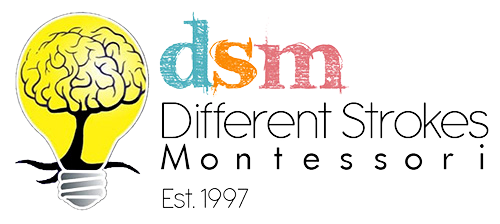
The Crucial Years: How Early Learning Shapes Your Child’s Academic Future – The Statistics Speak
Zainub Kara
As parents, we all want to give our children the best possible start in life. But did you know that the educational experiences in your child’s earliest years can have a profound and measurable impact on their future academic success? Let’s explore why starting early matters so much and how it can set the stage for lifelong learning, backed by hard data from long-term studies.
The Foundation of Learning
Research consistently shows that the first five years of a child’s life are critical for brain development. During this period, the brain forms over 1 million new neural connections every second. This rapid growth provides an unparalleled opportunity for learning and cognitive development.
Key Benefits of Early Childhood Education:
- Cognitive Skills Development
Early learning environments stimulate curiosity and problem-solving skills. Children who engage in structured early learning activities show improved memory, attention span, and critical thinking abilities. The Chicago Longitudinal Study found that children who attended preschool were 29% more likely to graduate from high school – a clear indicator of enhanced cognitive development. - Language Acquisition
The early years are prime time for language development. The Head Start Impact Study showed that 3-year-old children in early education programs demonstrated significant improvements in pre-reading, pre-writing, and vocabulary skills compared to a control group. - Social and Emotional Growth
Early childhood education provides crucial opportunities for social interaction. Children learn to share, cooperate, and regulate their emotions – skills that are fundamental for success in school and beyond. Strikingly, the Perry Preschool Study found that by age 40, only 36% of preschool participants had been arrested five or more times, compared to 55% of non-participants. - School Readiness
Studies show that children who attend high-quality preschool programs are better prepared for kindergarten. An OECD report revealed that 15-year-old students who had attended preschool for more than one year scored 33 points higher in reading – equivalent to almost one full year of formal schooling.
The Long-Term Impact
The benefits of early learning extend far beyond the preschool years:
- Higher Academic Achievement: The Abecedarian Project found that by age 21, 42% of the preschool group was enrolled in or had graduated from a four-year college compared to only 20% of the control group. Even more impressively, at age 30, participants were four times more likely to have earned a college degree (23% vs. 6%).
- Reduced Need for Special Education: A meta-analysis by the Washington State Institute for Public Policy showed that high-quality ECD programs resulted in a 31% reduction in special education placement and a 33% reduction in grade retention.
- Improved Social Outcomes: The Perry Preschool Study demonstrated that children who received quality early education were less likely to engage in criminal behavior and more likely to have stable family relationships as adults.
- Economic Benefits: The return on investment for early childhood education is significant. The Perry Preschool Study found that by age 40, individuals who had received preschool education earned 14% more than those who didn’t.
Starting Early in the Montessori Way
For parents considering early education options, Montessori programs offer a unique approach that aligns perfectly with the principles of early learning:
- Child-Centered Learning: Montessori classrooms are designed to foster independence and self-directed learning, allowing each child to develop at their own pace.
- Hands-On Experiences: Concrete, sensory-based learning materials help children grasp abstract concepts in mathematics, language, and science.
- Mixed-Age Classrooms: This setup promotes peer learning and leadership skills, enhancing both academic and social development.
- Emphasis on Practical Life Skills: Montessori education integrates everyday tasks into learning, promoting independence and self-confidence.
Conclusion: A Smart Investment in Your Child’s Future
The evidence is clear and compelling: early childhood education is not just beneficial – it’s crucial for setting the stage for future academic success. The statistics from long-term studies paint a vivid picture of the profound impact early learning can have on a child’s life trajectory.
By providing your child with a rich, stimulating learning environment in their earliest years, you’re giving them the best possible foundation for a lifetime of learning and achievement. Whether through a structured Montessori program or other quality early learning experiences, investing in your child’s education from the start is one of the most impactful decisions you can make as a parent.
Remember, it’s never too early to start nurturing your child’s potential and paving the way for their future success. The numbers don’t lie – early childhood education is a powerful tool for shaping brighter futures.
